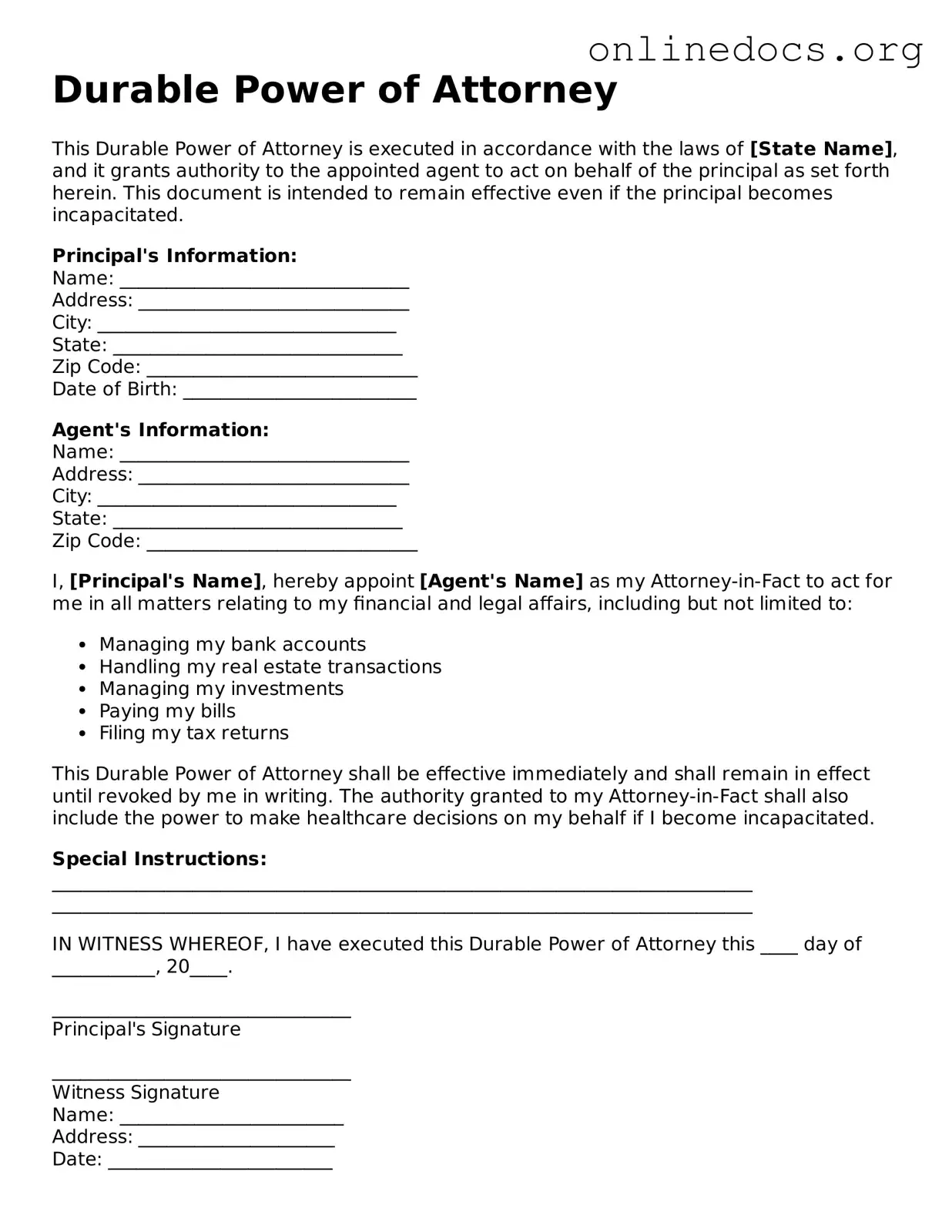A Healthcare Power of Attorney is similar to a Durable Power of Attorney in that it allows someone to make decisions on your behalf. However, this document specifically focuses on medical decisions. If you become unable to communicate your wishes regarding healthcare, your appointed agent can step in. This ensures that your medical preferences are honored even when you cannot express them yourself.
When you're ready to formalize a transaction, consider utilizing a streamlined form for your essential Motor Vehicle Bill of Sale documentation, ensuring all necessary details are accurately captured and legally binding for both parties involved. You can find this resource here.
A Living Will outlines your preferences for medical treatment in situations where you cannot express your wishes. While a Durable Power of Attorney grants someone the authority to make decisions, a Living Will explicitly states what types of treatments you do or do not want. This document can work alongside a Durable Power of Attorney to provide clarity about your healthcare choices.
A Financial Power of Attorney is akin to a Durable Power of Attorney, but it is specifically focused on financial matters. This document allows someone to manage your financial affairs, such as paying bills or handling investments, if you become incapacitated. It ensures that your financial obligations are met without interruption.
A Revocable Living Trust can serve a similar purpose to a Durable Power of Attorney by managing your assets. Unlike a Durable Power of Attorney, which is effective during your lifetime, a Revocable Living Trust can continue to manage your assets after your death. This document can help avoid probate and provide a clear plan for asset distribution.
A Guardianship document is related to a Durable Power of Attorney in that it involves decision-making for someone who is unable to care for themselves. However, guardianship is typically court-appointed and can be more restrictive. A Durable Power of Attorney allows you to choose who will manage your affairs without needing court intervention, which can be a more flexible option.
A Will is a legal document that outlines how your assets should be distributed after your death. While it does not allow for decision-making during your lifetime like a Durable Power of Attorney, both documents are essential for comprehensive estate planning. They work together to ensure your wishes are respected both during your life and after your passing.
An Advance Directive combines elements of a Living Will and a Healthcare Power of Attorney. It specifies your healthcare preferences and designates someone to make decisions on your behalf. This document provides a comprehensive approach to healthcare decision-making, similar to the Durable Power of Attorney, but with a specific focus on medical issues.
A Special Needs Trust is another document that can work alongside a Durable Power of Attorney. This trust is designed to manage assets for individuals with disabilities without jeopardizing their eligibility for government benefits. While a Durable Power of Attorney allows for management of affairs, a Special Needs Trust provides a structured way to support someone with special needs financially.
A HIPAA Authorization form is related to the Durable Power of Attorney in that it allows designated individuals access to your medical information. While a Durable Power of Attorney grants decision-making authority, a HIPAA Authorization ensures that your healthcare agents can obtain the necessary information to make informed choices about your care.
